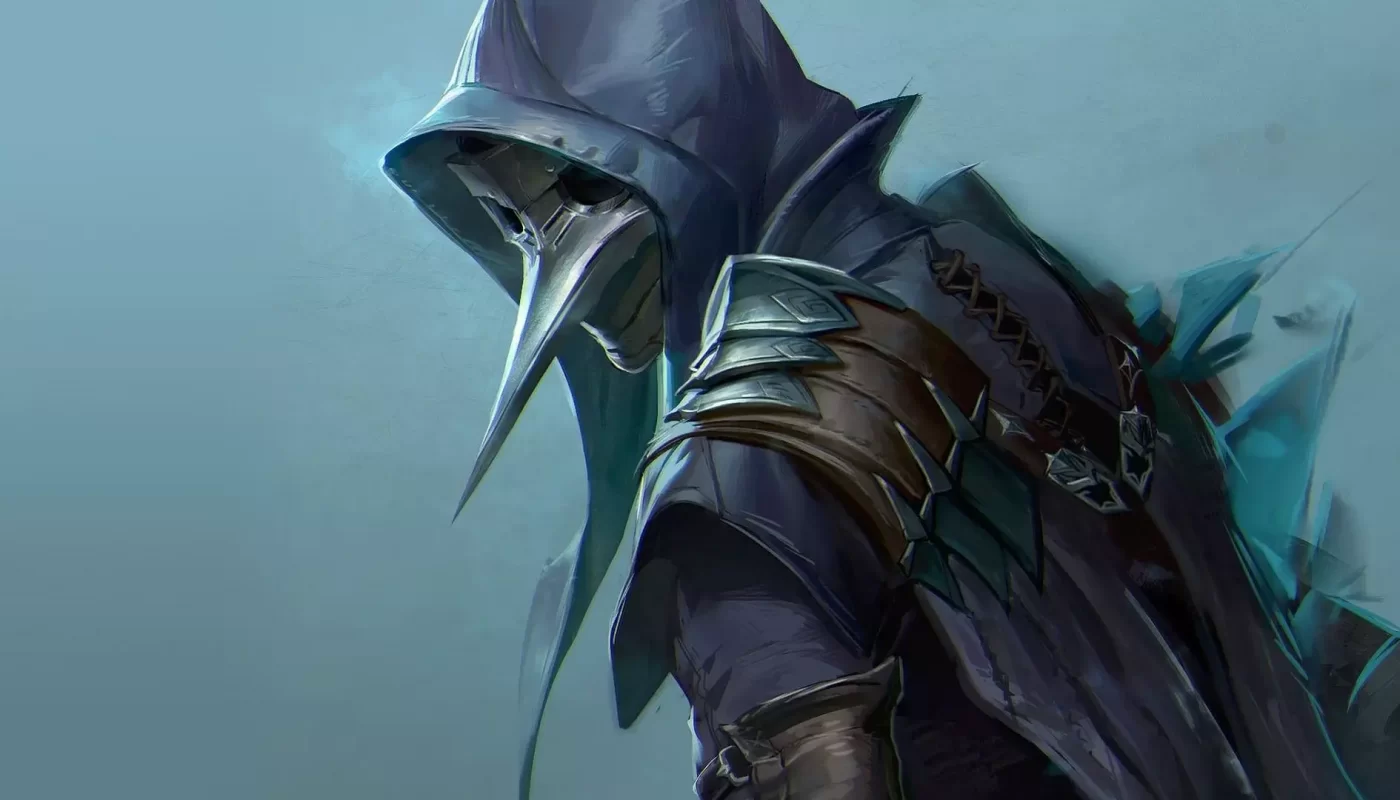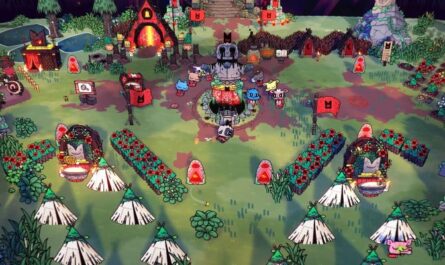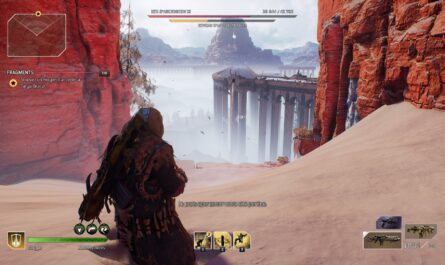As explained a couple of months ago in our Thymesia preview , the first project from Taiwanese OverBorder doesn’t really do anything to hide the similarities with Bloodborne . Not only are there clear points of contact, but most of the game systems are borrowed from the masterpiece of From Software.

The project brought to light by “seven action game enthusiasts” , as the development team likes to define themselves, had shown several shortcomings that in the preliminary phase had worried us not a little, while admitting that some features of the combat system already worked quite well and proved intriguing for the possible developments of the full game.
After testing the final code, we can say that Thymesia has finally turned out to be a title that can satiate a bit the hunger of the unshakable soulslike fans , without however configuring itself as one of the best exponents of the genre or as a project capable of keeping up. with the times in any way.
Thymesia, the story
There is a great difference between those who manage to narrate in a hermetic and cryptic way and those who have so little to say that they leave skimpy and never meaningful information here. Thymesia is the perfect example to confirm this fact, to show how little it takes to firmly draw a clear dividing line: if on the one hand all this elevates the narrative choices so dear to From Software, a master in making a virtue of necessity. with writing, on the other hand, it only underlines the scarce relevance of the history present within this small project and of many others who over the years have tried to replicate the same formula with little success.

Beyond the copycatness present substantially almost everywhere, Thymesia immediately overwhelms the player with a setting and a context of the game world that will immediately appear familiar to those who adored the soulslike gothic directed by Miyazaki.
Without ever remotely approaching certain artistic and narrative peaks , what the title of OverBorder tells us focuses on the events related to a strange and unknown disease attributable to the plague, which spread with incredible rapidity within the kingdom of Hermes.
In that unfortunate era, men turned to alchemy to try to stem the disease and experiment with completely personal and imaginative treatments, with results that soon became catastrophic. With the kingdom now slipped into total chaos, and with deformed monsters that garrison the streets, the last hope is entrusted to Corvus , the main character who can reverse course and save the kingdom.
To do this, however, he will have to bring back his own memories, scattered along the levels that make up the adventure. So there is no interconnected world or elaborate map design: you go to one area, clean up, kill the boss and get ready for the next one.

The conduct of the game includes a main hub from which you can talk to a mysterious woman who, at your request, will teleport you to the sparse settings available in the adventure. Having ascertained the low number of areas, what made us even less pleased is the presence of secondary missions that are unlocked immediately after overcoming the main challenges.
A bit like what happens with Nioh (on Amazon you can buy the collection with the two chapters ), a couple of extra tasks can be accomplished by doing the same thing again and solving objectives that will not matter to you.
At the limit, the only real usefulness is given by the fact that in this way you will be able to level up a bit and thus be more ready to face the boss fights, the only real obstacles (never really prominent) of Thymesia . In these secondary you will sometimes undertake diversified paths and you will face some elite enemies to find what you need, but this clearly cannot be enough to significantly diversify the reuse of the same dynamics within the same places, nor to stimulate the player to act spontaneously. to discover details that will never turn out to be juicy.
Thymesia does not have the development, the scope, the duration or the breadth that we would expect from a modern soulslike, and in a nutshell it reveals itself almost a sketch compared to all the other most prominent titles, a game crystallized in the past and out of time maximum.
The only real push to carry it out, as hinted widely, is therefore not the story, which on the contrary is only a rather negligible outline . It is in the combat system, if anything, that the best features of the entire project reside, which has some game variables with good potential only partially expressed.


Gameplay
Thymesia largely mimics the combat system of Bloodborne , therefore there are no rolls but only dodges and a certain precision in delivering hits on enemies. Corvus can use a saber for basic slashes, but these only cause wounds that will tend to heal. To make the damage effective you will therefore have to attack with a special claw, less rapid than the primary blade.
By holding down the claw button and charging the attack, however, Corvus can literally steal the ghost of the pestilential weapon with which the opponent is equipped and use it once as if it were in effect a special attack.
Nothing prevents you from repeating the operation, but you must choose the right moment to expose yourself without too many risks. The parry is also not to be underestimated, because getting the timing right and repelling the blow actually causes damage to the monsters and can potentially make fights less long and dangerous.

Once you have learned these basics, a player on average accustomed to soulslike will have no difficulty in completing Thymesia , which we would define without too many worries of mind a rather simple title to master at best.
Discovering breaches in defenses, exploiting weaknesses and using the most effective pestilential weapons will be actions to which the most seasoned players will become accustomed to in a short time , but at the same time it should be noted that there are certain imbalances that facilitate some fights a little too much. The hope is that they can be mitigated with one or more post-launch patches.
This does not mean that Thymesia is a walk of health, attention, but only that there is a wide range of solutions to always come out victorious without too many headaches. This is due to Corvus’ extensive development and growth system and talents, which in addition to letting you customize your fighting style satisfactorily , allow you to model your character at each checkpoint.
In Thymesia you can in fact reshuffle the cards every time, redistributing the evolutions of the talents as you please. On the other hand, it will not be possible to do with the parameters of the basic characteristics, which only affect the health, strength and effectiveness of the pestilential weapons.

There is no stamina, and therefore on paper Corvus can move continuously and without having to undergo fatigue. in reality, although a double dodge can also be unlocked, there are moments that are not properly managed at best, in which between one animation and another one remains uncovered. Furthermore, the limitations related to the directions of the dodges often generate problems that lead to being hit equally with particular sweeps .
That said, Thymesia still gives life to sparkling and very fast fights, where with the right skills you move like splinters. This, to a small extent, makes the clashes more pleasant and technical.
With more ambitions (and staff and original funds and ideas) the project could have emerged from the mare magnum of clones, but as it is, it really struggles to be recognized as an unmissable soulslike. Even technically it does not defend very well, and despite being on PC and next-generation consoles, the general aspect is back to the dawn of the last generation.
The environments are spartan, unadorned, not at all memorable , while several textures are in low resolution and certainly do not help to gratify the eye with a noteworthy cosmetics. As a corollary, we also point out some small uncertainty in the frame rate, which however is not revealed during the fights but only in certain transitions from one area to another. Too bad, because Thymesia , in spite of everything, could have said something about her in a now ultra-inflated genre.
Version tested: PC



